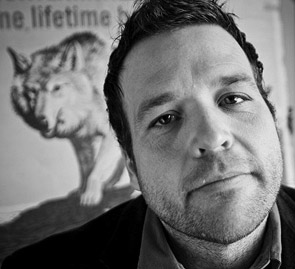There are a great many things I admire my mom for, and when I think about who she is, my heart wells up with love and almost this sense of weird sadness. I can’t really explain the weird sadness except that it stems from a place of deep gratitude to have been born to her, all that she’s sacrificed for me, and the way she raised me, and the fact that I can’t have her forever on this earth. It’s this mysterious maternal bond that evokes such emotion and connection between mothers and daughters, and my english language falls short of describing that kind of love.
This past mother’s day my mom and I were out shopping and talking in the car, and she mentioned that our relationship was such a blessing to her because there were a lot of things missing between her and her own mother. Now, I love my grandma make no mistake, but I’ve known that she and my mom never had the closeness or connection that my mom and I share as mother and daughter. My grandma actually said some pretty hurtful things to my mom and left some emotional scars in her soul that were pretty hard for her to forgive and reconcile. That said, one of the things my mom shared with me that day about her decision to parent me in the way that she did, was that she would avoid using what she calls ” the stupid no”.
The stupid “no” is telling your child he or she cannot do something, or that something is wrong without telling them why or helping them see any logic in the forbidding. Some might argue that little kids can’t understand reason, or that they won’t heed a reasonable explanation for why not to do something, but I disagree 100%. When my mom had to tell me no, or put limits on something I was doing, which was rare anyway; we always dialogued about it, and I truly knew that she had my best interest in mind, so I rarely fought it. In fact, I had such a respect for her, if I did do something I knew she wouldn’t be happy about me doing if she were present, I would feel extremely guilty, and pained in my heart. This is because I knew where she was coming from, and that it would break her heart if something bad happened to me.
What I have just described here, I know is not that common between parents and children. I don’t really have a relationship with my dad, so I also get the feelings that accompany an absent parent. What is more uncommon than the relationship I have with my mom in comparison to other mother/daughter relationships, is experiencing these exact emotions with God; having this kind of relationship with the one who calls himself ” Our Father”.
When I read the bible, even if I am trying to study it for its historical/literary content, I am always blown away by the continual expression of love and relationship between God and man, and the eerie way that particular verses can break the dam of my unaware heart at any moment, and send me into deep contemplation or on my face weeping. I no longer pray with the goal of accomplishing an agenda, but rather for the privilege of being with God and having relationship with him. Whenever I sit down to pray, I begin by saying his name, and BAM, I can feel him, as if he had been waiting at bated breath for me to notice that he was already there anyway.
I do not for one minute believe I have this sort of relationship with God because I am special, not at all. God desires to have this with everyone he created, everyone. When I wrote about Donald Miller’s theory on the Lifeboat mentality people operate under, as if some enchantment had bewitched the entire world, I didn’t mean for it to seem as an eternal disposition. Rescue has come in the person of Christ, and true validation and love are restored in his person. Contrary to what many feel when they think about Jesus, following Him is less about keeping rules; in fact it’s not about that at all, and all about the bond between your heart and his, in exactly the same way my mom and I share our familial bond. 
This brings me to the question, what is this whole issue of morality being a political flag the mainstream Christian Church is waving these days? To break it down, it is like the ” stupid no” my mom refused to deal me when I was growing up, but it seems like that is what the church is dealing people who aren’t living up to its standards of morality. From my observation, those who deal it, are more concerned with a propositional gospel rather than a relational one. The truth is that the bible is not a strict moral code, it does not address each and every issue giving a black and white, right or wrong. It gives enough to guide a man’s conscience, but it was not intended to be a rule book. It is made up of poetry, letters, historical events, and parables that are meant to reach into a man’s heart and invoke and invite a relationship with God.
I believe that God deeply cares about morality, but he never intended for it to be a means by which we earn favor with him. Morality cannot save anybody. It would be like my mom and I’s relationship being all about what I can and cannot do, and nothing else. In the same way I wanted to honor my mom by heeding her guidance because I loved her, and I know she loves me, that is where true morality stems from. It is what keeps a husband from cheating on his wife, a friend from stealing a friends goods, it holds us accountable for helping the poor, because relationships are affected by morality or the lack thereof. Have you ever noticed that all of the ten commandments are about relationships with others?
Morality as a means in and of itself is dead. Yet the church in many ways has turned it into a culture war in an us vs. them mentality. When Christians think about current morality issues, they are most likely to raise the topic of abortion and gay marriage. “However, moral ideas presented in the New Testament, by Jesus himself, include loving our neighbors, being unified in the bond of peace, loving our enemies, looking at ourselves before judge others, forgiveness, speaking the truth in love lest we sound like clanging cymbals, ( turn on fox news if you want to hear clanging cymbals).” -Donald Miller-
Morality as a political battering ram against those who do not agree or live by the same precepts is not what Jesus would want, if it was, he would have hopped into the political arena during his ministry, yet he did not. In fact, he avoided it at all costs. Just read the gospels and you will see this. Instead, he invested his time in people’s lives. He ate with prostitutes, befriended underhanded tax collectors, and kept company with thieves, people with issues and mess all around, and he treated them with love, respect, and shared the deep things of God with them, and you know what, they found life and went on to change the world.
Donald Miller is a Christian author, but by no means on a political, self-serving pedestal. He was a guest on a conservative radio show broadcasted on a secular station awhile back, and the dialogue between him and the interviewer says a lot about this whole issue.
” The interviewer asked what I thought about the homosexuals trying to take over the country. I hadn’t realized that homosexuals were trying to take over the country.
“Which homosexuals are trying to take over the country?” I asked.
” You know” the interviewer began, ” the ones who want to take over Congress and the Senate.” I paused for a while. ” Well, ” I said, ” I’ve never met those guys and I don’t know who they are. The only homosexuals I know are very kind people, some of whom have been beat up and spit upon and harassed and, in fact, feel threatened by the religious right.” Think about it. If you watch CNN all day and see extreme Muslims in the Middle East declaring War on America because they see us as immoral, and then you read the paper the next day to find the exact same words spoken by evangelical leaders against the cultures here in america, you’d be pretty scared.
” And what is the name of this homosexual group that is trying to take over America?” I asked him again, somewhat angry at his misuse of war rhetoric.
” Well, I hear about them all the time,” he said, rather frustrated with me.
” If you hear about them all the time, what is the name of the organization?”
” Well, I don’t know right now. But they are there.”
” Can I list for you ten or so Christian organizations who are working to try to get more Christians in the House and the Senate?” I said to the host.
” I get your point”, he said.
” But I don’t think you do. Here is my position: As a Christian, I belive Jesus wants us to reach out to people who are lost and yes-immoral, immoral just like you and I are immoral people; and declaring war against them and stirring up your listeners to the point of anger and giving them the feeling that their country, their families, and their lifestyles are being threatened is only hurting what Jesus is trying to do. This isn’t rocket science. If you declare war on somebody, you either have to kill them or handcuff them, That’s the only way to win. But if you want them to be forgiven by Christ, if you want them to live eternally in heaven with Jesus, then you have to love them. The choice is yours and my suspicion is you will be held responsible by God, a judge who will know your motives. So go ahead and declare war in the name of a conservative agenda, but don’t do it in the name of God. ”
Jesus will be nobody’s flag to wave.” I suspect that any lack of love or feelings of anger we have toward the culture around us are not feelings that come from God, but rather our souls arising again to cast rocks at the woman caught in adultery. We should not expect Christ to respond any differently to us than He did to the moralists of His day:” – Don Miller-
They dropped their stones and walked away feeling ashamed that each of them had been proven a sinner, too. And Jesus went over to comfort the woman, telling her, ” Go, and sin no more””. ( John chapter Eight)








